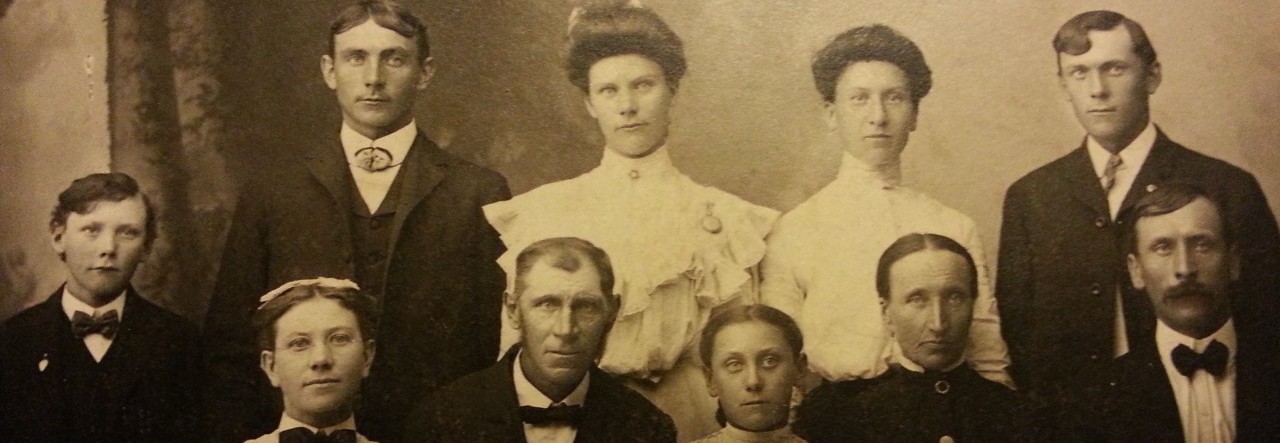You can find the previous posts for this discussion here: Part 1, Part 2, Part 3, and Part 4.
Today is my last installment of this series and it’s about becoming a certified/accredited genealogist. I am sticking to the two certification boards that exist in the United States (which are also international). I am not familiar with any outside of the United States but feel free to note any in the comment section!
Board for Certification of Genealogists
The BCG was founded in 1964 by the fellows of the American Society of Genealogists who wanted an organization that would set scholarship standards for professional genealogy to help treat the profession as a serious research discipline.
To become certified through the BCG (earning the nominal CG), you send in an application and then you have one year (called “on the clock”) to submit your finalized portfolio. Any and all of the research done in the portfolio can NOT have been previously published or reviewed (that includes through courses you have taken). Everything needs to be fresh work so the judges can see how well you do on your own. In the portfolio are several items:
- Genealogist’s Code – the pledge is found here and each applicant must sign and adhere to it once certified (it’s a good idea for anyone though)
- Background Resume -this is not evaluated- this includes a general education background, genealogical education, genealogy-related activities. research experience, reasons for seeking certification, and accessibility to records.
- Document Work (BCG supplied document)
- Document Work (your work) – for both document work pieces, you are to transcribe, abstract, create a research focus, supply a brief commentary on evidence value, and create a research plan to show your skills in each area.
- Research Report – this is written for a client that is not related to you or your spouse. It shows how you respond to a client’s goal, and shows how in-depth you get into records and your skill in analyzing them.
- Case Study: conflicting or indirect evidence – this section shows how well you work with the Genealogical Proof Standard to solve an identity problem that doesn’t have any direct evidence to prove an item.
- Kinship-determination project – this is a narrative genealogy, a narrative lineage, or a narrative pedigree (choose one!) for one family. These are three couples in successive generations (minimum) but the most recent generation cannot include you or your siblings, but it could include your parents. Be sure there are a wide range of sources! From what I’ve read, heard, and seen, this is the biggest portion of the portfolio.
Three or four judges will review the portfolio and they all have to agree to certify the genealogist as a CG.
To see some examples, the BCG website supplies some work samples but you can also check out portfolios at major conferences, like NGS, as well.
The certification lasts for five years and then you’ll need to recertify but it’s not as big of a project as the first time!
I hope to get certified through the Board for Certification of Genealogists!
The International Commission for the Accreditation of Professional Genealogists ICAPgen
ICAPgen is a professional credentialing organization that was established in 1964 by the Family History Department of the Church of Jesus Christ of Latter-day Saints. The church later transferred ownership to what the International Commission for the Accreditation of Professional Genealogists in 2000 and is now an affiliate of ICAPgen. ICAPgen gives successful genealogists the AG (Accredited Genealogist) nominal.
ICAPgen recommends having over 1000 hours of research and educational experience in your chosen area before applying. The following are the accreditation requirements:
- A quality four generation research report
- An 8 hour written exam
- An oral review
ICAPgen uses a level program to help genealogists prepare for each part of the process. Level 1 involves the four-generation project; Level 2 involves four written sections that focus on record content; and Level 3 involves two written sections that focus on data analysis, research planning, methodology, report writing, and an oral exam.
These tests do focus on a certain geographical area as well so you want to be sure to pick the area you have worked in the most (the 1000 hours of research I mentioned should be in this one part of the country). Here is where you can find their current areas of testing.
I will admit that I don’t know as much about ICAPgen as I do the BCG because I am going the BCG route. So if anyone has more knowledge or experience or even just a comment about any of them, please let me know! If I made a mistake, then definitely let me know so I can quickly fix it! I will say that all the information I gathered came from their respective websites.

